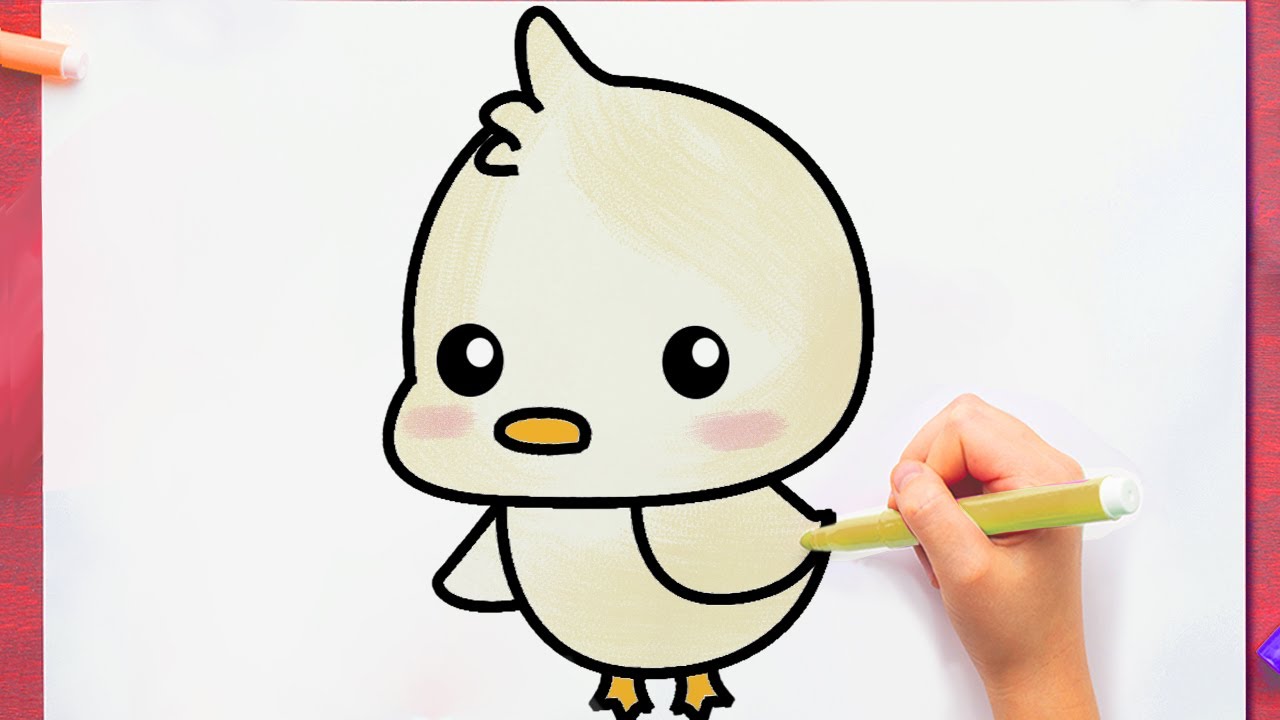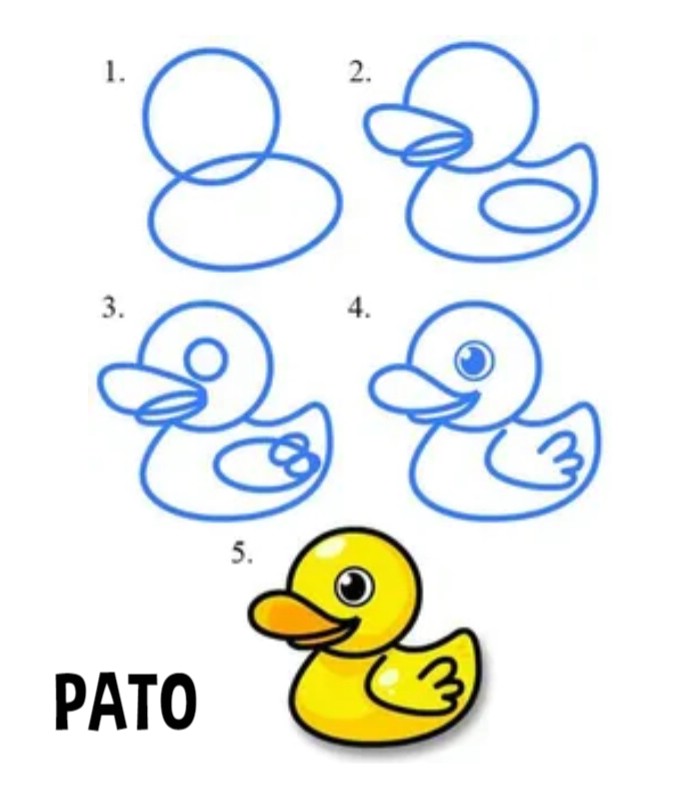Unlock Your Inner Artist: Mastering the Art of Duck Drawing

Ever found yourself captivated by the graceful glide of a duck across a pond? Or perhaps the comical waddle of a duckling has brought a smile to your face. Translating that charm onto paper might seem daunting, but mastering the art of duck drawing is an achievable feat, regardless of your artistic background. This guide delves into the process of drawing a duck, breaking down the steps from initial sketch to finalized artwork.
The desire to depict ducks has existed for centuries, interwoven with our fascination with the natural world. From ancient cave paintings to modern-day illustrations, ducks have held a prominent place in artistic expression. Learning to draw a duck, therefore, connects us with this rich history of observation and representation. Whether you're aiming for a realistic portrayal or a stylized cartoon, understanding the underlying structure and anatomy is key.
Representing a duck effectively involves more than just copying what you see. It's about capturing the essence of the creature—its posture, movement, and unique characteristics. The process of duck drawing offers a gateway to enhanced observation skills, training your eye to see details you might otherwise overlook. This heightened awareness translates to a deeper appreciation for the natural world and can even inspire your creative pursuits beyond drawing.
There are various approaches to the art of duck drawing. Some prefer to start with basic shapes—circles, ovals, and rectangles—gradually refining them into a recognizable duck form. Others might begin with a light sketch, focusing on the overall proportions and pose before adding details. Regardless of your chosen method, the fundamental principles remain the same: observation, practice, and patience. Don't be discouraged by initial struggles. Each attempt brings you closer to mastering the skill.
The journey of learning how to sketch a duck is a rewarding one. It offers a creative outlet, a means of self-expression, and a connection with the natural world. From simple doodles to detailed illustrations, the possibilities are endless. So grab your pencil, embrace the challenge, and dive into the fascinating world of duck drawing.
A simple way to start is by drawing a circle for the head and a larger oval for the body. Connect these two shapes with a curved line for the neck. Add a triangle for the beak and small circles for the eyes. For the wings, draw curved lines extending from the body. Finally, add webbed feet using simple lines and shapes. Practice sketching these basic elements repeatedly to build a foundation.
Three benefits of drawing ducks are: 1. Improves observation skills. By studying ducks to draw them, you learn to notice intricate details. 2. Enhances hand-eye coordination. The act of drawing strengthens the connection between your mind and hand. 3. Boosts creativity. Drawing provides an outlet for self-expression and fosters imaginative thinking.
Action Plan: 1. Gather materials: pencils, paper, eraser. 2. Study duck references: images, videos, or real-life observation. 3. Practice basic shapes: circles, ovals, triangles. 4. Sketch the overall structure: head, body, neck. 5. Add details: beak, eyes, wings, feet. 6. Refine and finalize: add shading, texture, and color.
Advantages and Disadvantages of Focusing on Duck Drawing
| Advantages | Disadvantages |
|---|---|
| Develops specific drawing skills | Can limit exploration of other subjects |
| Enhances understanding of avian anatomy | May become repetitive if not approached creatively |
Five best practices: 1. Use light lines for initial sketching. 2. Observe real ducks or reference images carefully. 3. Practice regularly to improve skills. 4. Experiment with different angles and poses. 5. Focus on capturing the unique characteristics of ducks.
FAQ: 1. How do I draw a duck's beak? Start with a triangle and refine the shape. 2. How do I draw webbed feet? Use simple lines and shapes to represent the webbing. 3. How do I draw feathers? Practice different stroke techniques to create texture. 4. How do I draw a duck in flight? Study images of flying ducks to understand wing positions. 5. What kind of pencil should I use? Start with a medium-grade pencil like an HB. 6. How do I shade a duck? Use light and dark values to create depth and volume. 7. How do I draw different types of ducks? Research specific breeds and their unique features. 8. Where can I find duck drawing tutorials? Search online for tutorials and resources.
Tips: Vary the pressure on your pencil to create different line weights. Use an eraser to lift highlights. Practice drawing from different angles and perspectives. Don't be afraid to experiment with different styles.
Learning how to depict a duck through drawing is more than just a technical skill; it's a journey of observation, practice, and creative exploration. By understanding the underlying principles of shape, form, and proportion, you unlock the ability to capture the essence of these fascinating creatures. Whether your goal is realistic portrayal or stylized interpretation, the act of drawing a duck offers a powerful means of self-expression and connection with the natural world. Embrace the challenge, enjoy the process, and allow your creativity to soar. Continue exploring different drawing techniques, experiment with various mediums, and never stop observing the beauty of ducks in their natural habitat. This dedication will undoubtedly elevate your artistic skills and deepen your appreciation for the avian world.
Upgrade your curb appeal with behr exterior paint schemes
Decoding the secrets of wheel bolt patterns your guide to lug nut configurations
Unlocking the secrets nissan rogue reviews year by year













